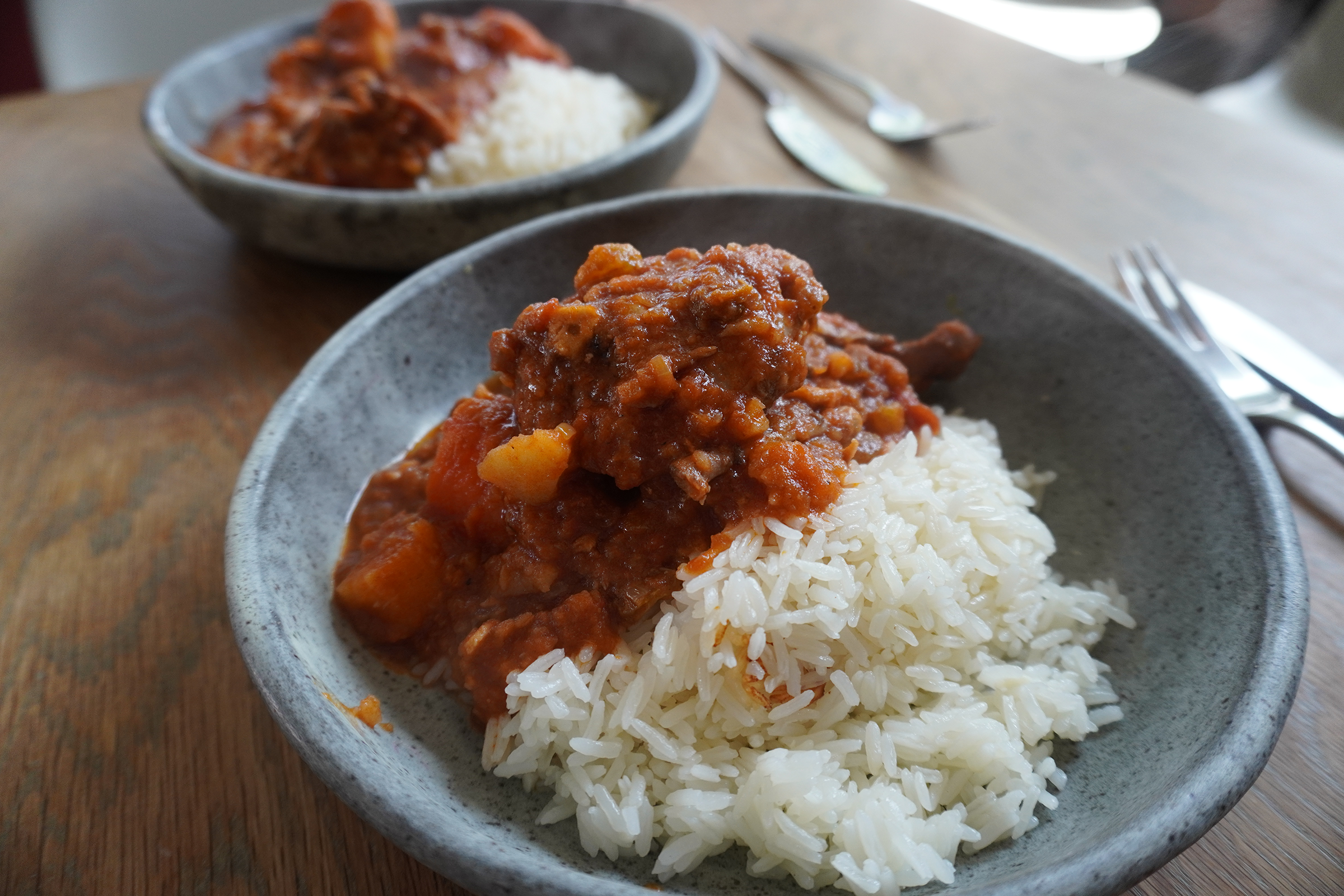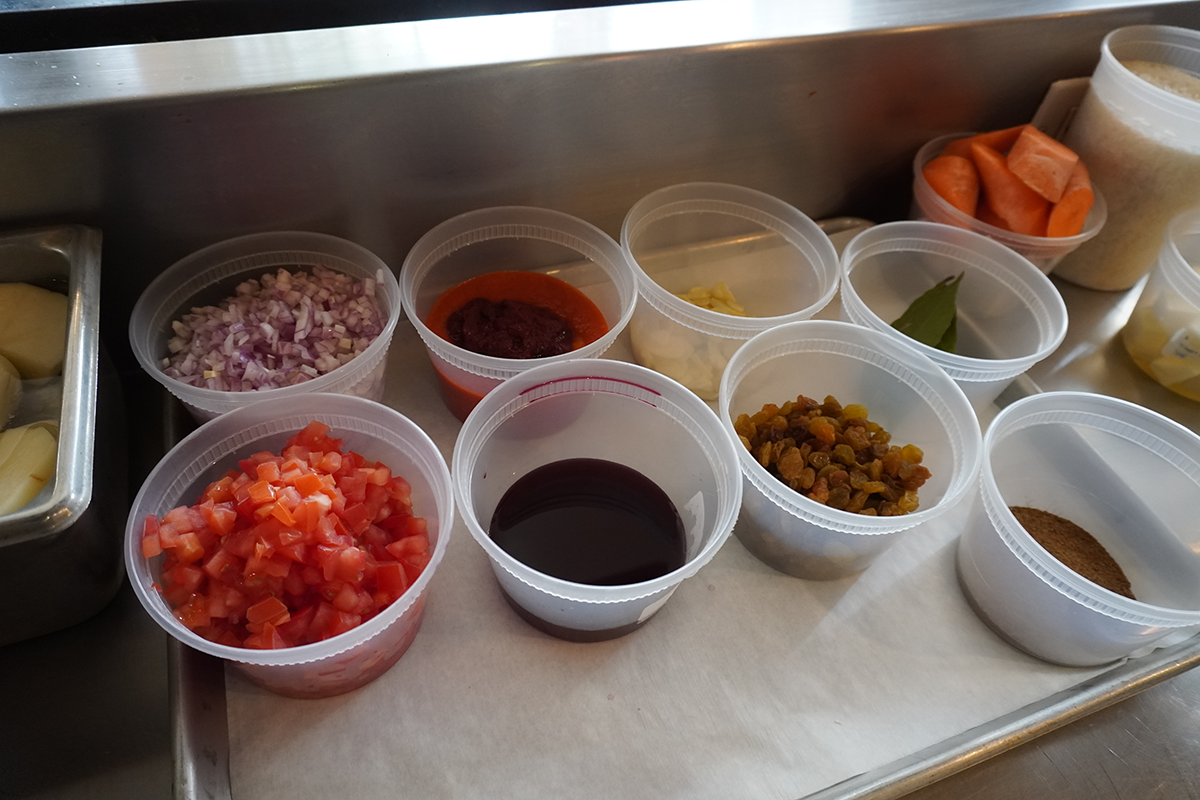
Estofado de Pollo, the Italian connection.
Erik
Erik Ramirez is the Peruvian-American chef at New York’s Llama Inn. The restaurant earned a Michelin Bib Gourmand recommendation and two stars from the New York Times, where it was named a top restaurant of 2016.
Erik sets down a plate of estofado in front of his kids. The boys, five and three, look down at the hearty chicken stew over rice, then back up at their father. “Go ahead,” says Erik, “Eat.” He knows they'd rather be staring at a slice of pizza, or a cheeseburger, but he won’t let them leave the table until they eat this.
That morning, Erik awoke thinking of his mother’s estofado de pollo. On a regular day he doesn’t cook for his kids. He’s too busy working as a chef. On a regular day, he doesn’t wake up thinking about his mother’s chicken, either. This day is different. The scent of ají panca simmering in a pool of wine sneaked into his dream, and jolted him awake.
He’s made estofado a million times. He’s even joked that he could cook estofado in his sleep. Now his mother’s perfect dish had come to him in a dream, and he feared he couldn’t live up to it. It wasn’t until he was facing the kids at the dinner table that he started to see his mission. The kids don’t speak Spanish. He’s tried teaching them to no avail. Their whole life speaks in English - their school, their friends, their youtube videos, their mom...
He can’t force it, that much he knows. He remembers how, at their age, his great grandmother spoke fluent Italian with him. He wasn’t much older than his eldest is now when she died. After that day, he refused to speak Italian again. He felt the language belonged only to her.
Suddenly, he realizes his kids view the estofado as an invasion. To him, Peruvian cooking is home cooking. But to them, Peruvian cooking is the food of professionalism and restaurants, their father’s art. It’s like Spanish -- a different language. They are resisting both. He must help them change, but to do that, he can’t just cook estofado. He must make the estofado of his dreams, his mother’s estofado. He telephoned her. What’s your secret? “Lots of wine,” she said. He tried to make it as close to hers as possible. It was delicious. But not the same.
The Spanish word “sazón” can’t be translated. To American ears, it means seasoning. To Peruvian ears, it is a magic word that explains why two people can cook the exact same recipe, and it will never taste the same. Each person has their own “sazón.” Either you have good “sazón,” or you don’t. By all accounts, Erik’s “sazón” is extraordinary. In that moment, thinking he had been unable to replicate his mother’s signature dish, he feared that his “sazón” had betrayed him, that he had failed, that his children would never speak Spanish in their life.
He wonders: If cooking is a language, will his kids refuse to cook like they refuse to speak Spanish? Years ago, he refused to speak Italian. Now he can’t speak Italian at all. If his children see Spanish as only his language, will Spanish be forgotten? What about the cooking? What of his influence will they hold onto?
If Peruvian cooking is the language, then the food is the word. Right now his kids don’t speak Spanish, but he can get them to eat the food. Will they ever speak it? Will they ever cook like him? He’s not sure. But he can breathe a little easier, knowing that even if they don’t speak the language, they understand the words.
Text by Conrado Falco III












A Glimpse into Erik's Roots
Explore Erik Ramirez's journey as he connects with his heritage through food. Join us as Erik, a talented chef, shares the story of cooking his mother's estofado for his children, blending tradition and identity in every bite.

Estofado de Pollo
Ingredients:
4 chicken legs
240gr. red onion, small dice
145gr. red bell pepper
30gr. garlic
140gr. carrots
35gr. aji amarillo
55gr. aji panca
90gr. red wine
320gr. plum tomato
1kg. chicken stock (braising liquid) or water
Method:
Lightly brown chicken legs in oil. Remove and lightly brown garlic, add red onion, pepper, tomatoes and carrots and cook until softened. Add purees and cook for about 3-5 minutes. Deglaze with red wine and cook to sec. Add chicken stock, chicken legs, and cook till tender. Remove legs and cook down sauce until desired consistency is achieved.

